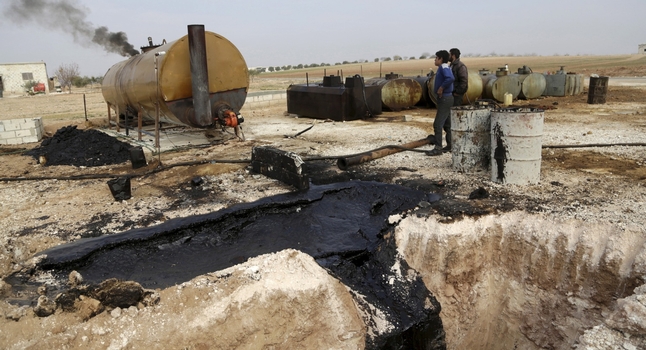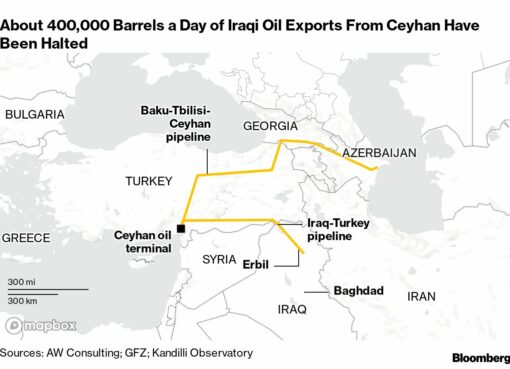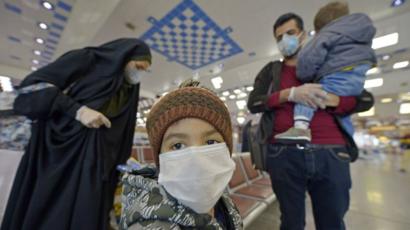Recent intensified air strikes by a US-led coalition on oil infrastructure controlled by Islamic State (IS) in Iraq and Syria have reportedly eroded the militant group’s most important source of revenue and undermined its ability to govern territory.
IS’ oil operations in Iraq have almost been shut down by air attacks carried out under the so-called Operation Tidal Wave II launched in October as the focus has shifted away from military targets to oil installations after details of the group’s crude production operations were seized in a raid earlier this year, according to the Iraq Oil Report.
The raid conducted in May by American special forces resulted in the IS leader in charge of its oil assets in Syria, known as Abu Sayyaf, being killed and nearly seven terabytes of intelligence data falling into coalition hands.
The report claims it is publishing for the first time details from IS’ records of its oil activities that have just been declassified by the US government.
“We are already seeing a degraded capability from the beginning of Tidal Wave II, in terms of management of fields and transporting crude and fuel,” the US State Department’s special envoy for international energy affairs Amos Hochstein told the publication.
The captured documents reveal that oil accounts for about 50% of the group’s profits and crude sales have generated as much as $40 million a month in revenue.
A broad array of military action carried out by federal Iraqi forces, Kurdish Peshmerga forces, the US-led coalition and Iran-backed paramilitary forces has succeeded at recapturing almost all the oilfield assets that IS once controlled in Iraq, it is reported.
The campaign is now focusing on IS-controlled oilfields in Syria as well as the only oilfield still held by the group in Iraq, Qayarah, where oil trucks and infrastructure including a key refinery have been targeted in at least 30 air strikes carried out over the last two months.
The aerial bombardment of the field, located about 80 kilometres south of Mosul, coincided with Kurdish forces recently retaking the key Iraqi town of Sinjar to cut off the main oil supply route between Mosul and IS-occupied territory in Syria, leading to a damaging spike in fuel prices for the group.
Residents of IS-controlled areas of Iraq told the publication the intensified military pressure is being felt on the ground, with the group struggling to provide basic services as fuel shortages have hit the availability of electricity and, in some areas such as Mosul, running water, while prices of fuel, food and other goods have shot up.
“We had food, fruits, fuel. But this started to diminish in 2015… Now, there isn’t healthy drinking water, and foods and medicines are in short supply. The people are suffering from despair because Daesh [aka IS] is controlling their fate,” one resident of Qaim in western Anbar province near the Syrian border was quoted as saying.
Iraqi Prime Minister Haidi al-Abadi vowed on Tuesday to eradicate IS from his country after government forces retook the strategically important town of Ramadi and said they would next liberate Mosul – Iraq’s second-largest city – to deal a “fatal and final blow for Daesh”.
However, the records of Abu Sayyaf also confirmed that strikes on field infrastructure – including pumps, flow lines, manifolds and even wellheads – could not stop production entirely, and in some cases took facilities offline for only a few days.
They also indicated the group’s resilience to military strikes, with open-pit refineries springing up around Mosul in an effort to increase fuel supplies.
IS has previously been able to carry out lucrative smuggled exports to Iraqi Kurdistan and Turkey after capturing storage tanks and pipelines holding millions of barrels of crude and refined fuel, while also imposing taxes at various stages of the supply chain to maximise revenue.
However, the group is now reported to be unable to generate enough fuel to meet demand within its own territory – as evidenced by high and volatile prices – and is therefore left with little to export.
Moreover, global oil prices are now so low that smuggling crude for sale across borders would no longer be profitable due to the costs of transport and bribes.
“Moving that oil across great distances when there is a local market in Syria simply doesn’t make that much sense,” Hochstein said.
Source: By Upstream staff & news reports 29 December 2015 12:35 GMT
http://www.upstreamonline.com/live/1420231/is-oil-economy-degraded








Comment here